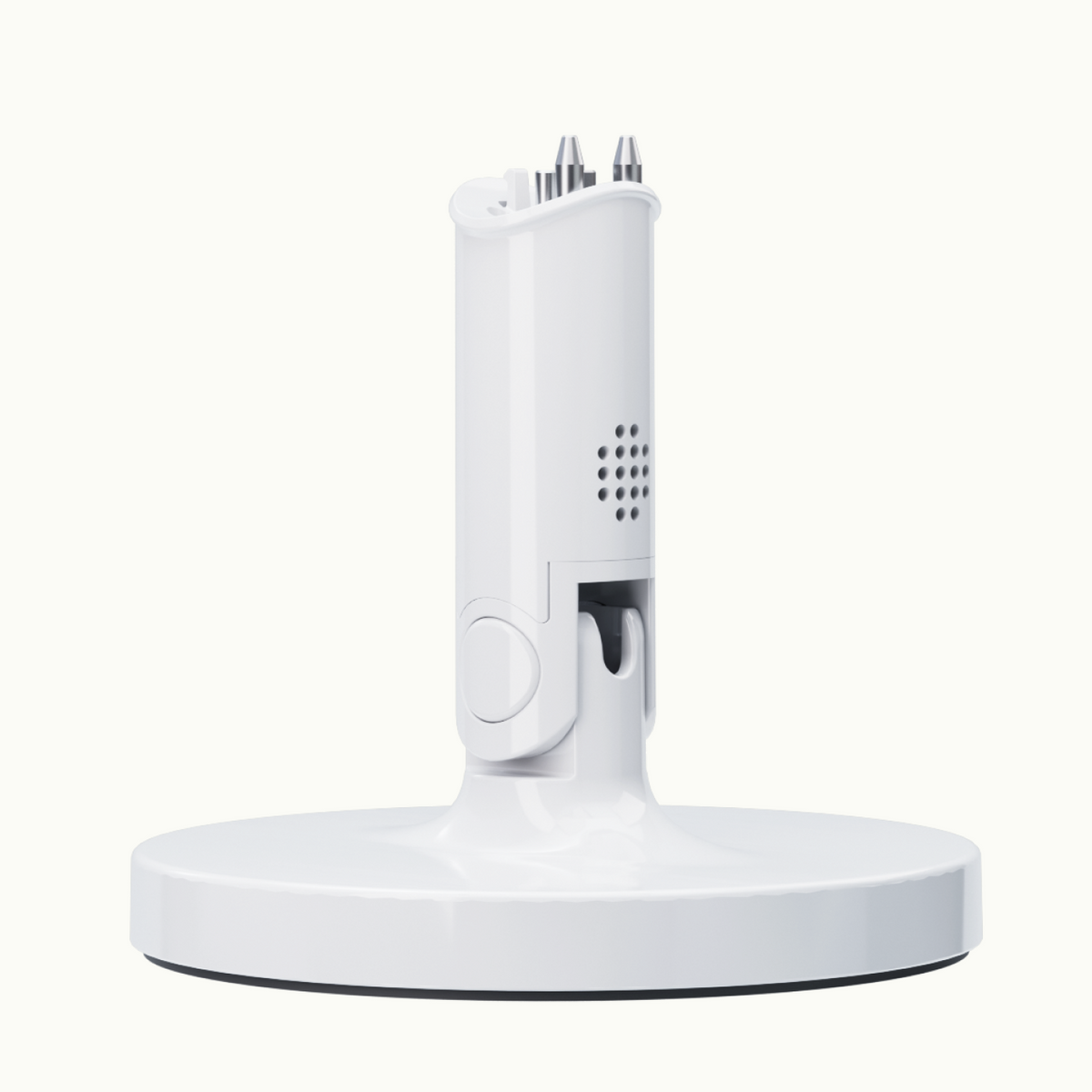At Nanit, we regularly study a wide range of parenting topics including sleep, feeding, teething, postpartum wellness, maternal and paternal leave, sex health and more. Through this research important trends have emerged. One trend that we’ve been seeing come up again and again: How confident parents feel, and what makes parents feel more—or less—confident.
As we started to dig deeper into the topic, we saw confidence as a trend not just in our own research but in the larger world as well. If you’ve found yourself googling these questions at 3am, you’re not alone:
- How can I be a confident parent?
- Why is confidence important in parenting?
- Which parenting style is best for self-esteem?
- How do parents affect your confidence?
In our Nanit Lab research, several recurring themes appear to have significant influence on how confident parents feel. To highlight these important findings in the hopes that they might open up solutions for families and inspire change and progress, we created our recent report, The State of Parental Confidence 2024.
“We wanted to understand parental confidence more and understand how we could improve it,” says Dr. Natalie Barnett, VP of Clinical Research at Nanit. “How do we make parents feel even more confident? The goal is to help them feel supported and come from a place that is as nonjudgmental as possible. We want to consistently provide science-backed tips, recommendations and information so parents can absorb as much info as possible and make decisions for their families in a confident way.”
Find out what we learned.
Pillars of Parental Confidence
As parents, you want to feel like you know what you’re doing, strong and sturdy about your choices, and capable in your actions. But what makes you sometimes able to stay calm in the face of a toddler tantrum, and other times crumple over a missed nap? Our research revealed several common categories or issues that seem to play a big role in how confident a parent feels. These issues range from more personal ones—like how you think about and take care of yourself—to large-scale ones, systemic challenges and lack of support. And one connecting factor, that impacted confidence and parents’ wellbeing, across every category? Lack of sleep.
In order to improve parents’ overall well-being, we learned that it helps to pay attention to four main concerns:
Physical well-being
What it means: Physical well-being looks at how parents feel physically, including things like how much sleep you get, how well you’re able to heal and be supported postpartum, and how well you take care of yourself and take time for yourself.
PMADs or Postpartum Anxiety and Depression
What it means: PMAD can affect both moms and dads. In fact, 43 percent of the parents surveyed by Nanit expressed feeling anxious and/or depressed since becoming parents. Common PMAD symptoms are feeling anxious or panicky and having trouble sleeping. And dads are less likely than moms to notice their symptoms. “Dad’s lives change hugely after they become parents, but not many people talk about that,” says Dr. Natalie. “Dads aren’t encouraged in general to take parental leave in the way that moms are. Dads are expected to go about their lives as usual and it can be hard for them to ask for help.”
Self-Doubt
What it means: This creeps in for parents who are isolated or feel inexperienced and can come from comparing yourself to others or feeling pressure from others to be or do things in a certain way. “It can be very isolating,” says Dr. Natalie, “when you’re scrolling social media in the middle of night during a feeding, for example. You can wind up feeling very much alone. At Nanit, we want to provide a platform so people can be hearing from other parents and experts and understanding that our whole ecosystem is there to support them.”
Systemic Support
What it means: Some parents face uphill battles when dealing with issues like a lack of parental leave, adequate childcare, or other inequalities. From a recent study of Nnait parents, we see that moms are twice as likely to get no paid leave after having a baby as dads (20 percent versus. 10 percent), only 8 percent of parents are eligible for 20 or more weeks of leave and 93 percent of parents feel stressed about returning to work. Parents are worried about managing sleep (or the lack of it) and the chaos going back to work may bring to the family.
The Confidence Boosters
The good news is that, just as there are common causes that affect your confidence as a parent, there are also common steps that can help you feel stronger and more capable, improving your overall wellbeing and many of the above concerns. They include:
Choosing what’s best for your family
What it means: There is SO much information available to parents, and not every tip will be right for your family. What may have been a lifesaver for your neighbor or brother may not fit into your family’s routine, lifestyle, or values–and that’s okay.
“It’s important to try to work out what's right for your family and distill down all the information coming in. Having the confidence in your choices as parents is what’s most important. YOU are the best parent for your child, including your imperfections”
Getting more sleep
What it means: When you’re more rested, you’re better at doing all the things you need to do—and believing that you can pull them off. So, figuring out ways to be more rested is an important element of feeling better mentally and physically. Case in point: Caregivers who tag-team taking care of the baby at night get more sleep postpartum—an hour more per night—than parents who don’t. When it comes to Postpartum Anxiety and Depression, sleep and exercise helped anxious dads feel better; sleep and support from friends and family most helped moms.
Learning about your baby
What it means: Knowledge is power (and confidence!) and Nanit is uniquely positioned to help in this department. At Nanit, through our monitors and the App, we track all kinds of data—how long your baby sleeps, how often they wake up, breathing motion, milestones, and more. We then translate that data into accessible information and science-based, evidence-backed tips and recommendations.
“We want to gradually educate parents on what their baby is capable of, what they can be doing or could be doing,” explains Dr. Natalie. “We want to be arming parents with the right information at the right time so they feel confident in their parenting journey and in managing their child’s sleep.”
Asking for help
What it means: Support from friends and family is shown to improve PMAD for moms and to earn an extra hour of sleep a night for partners who share nighttime care of their baby. In cases where the system is stacked against you, reaching out to friends, family and your partner to troubleshoot issues like childcare may present solutions that you wouldn’t otherwise have thought of.
The Nanit Community and Nanit’s Social are all about providing resources and connections to parents at every stage. To laugh, cry, unlock the secret to better sleep & wellness for your whole family and celebrate real-life experiences with Nanit. “We want to make sure our parents are not feeling alone,” says Dr. Natalie. “We’re in it with them and we have a community of other parents who are going through the same things. The Community is there to support each other so no one has to feel like they’re going through something on their own.”
Connecting and Continuing
At Nanit, we remain dedicated to helping every parent feel as confident and capable as possible. “There’s so much pressure on parents at every stage to get things right,” says Dr. Natalie, “and no one does everything right. Everyone makes mistakes. But it’s about understanding what’s right for your family and feeling good about the choices that you make… Feeling confident in your choices makes for happier babies and happier parents.”
We plan to continue to look at the state of parental confidence now and for years to come, learning as much as we can and bringing those truths to you along with guidance and tips. Together we can build ourselves up as parents and people—and pass those strengths on to our kids. Learn more about Nanit Lab and the many topics we’re exploring.


